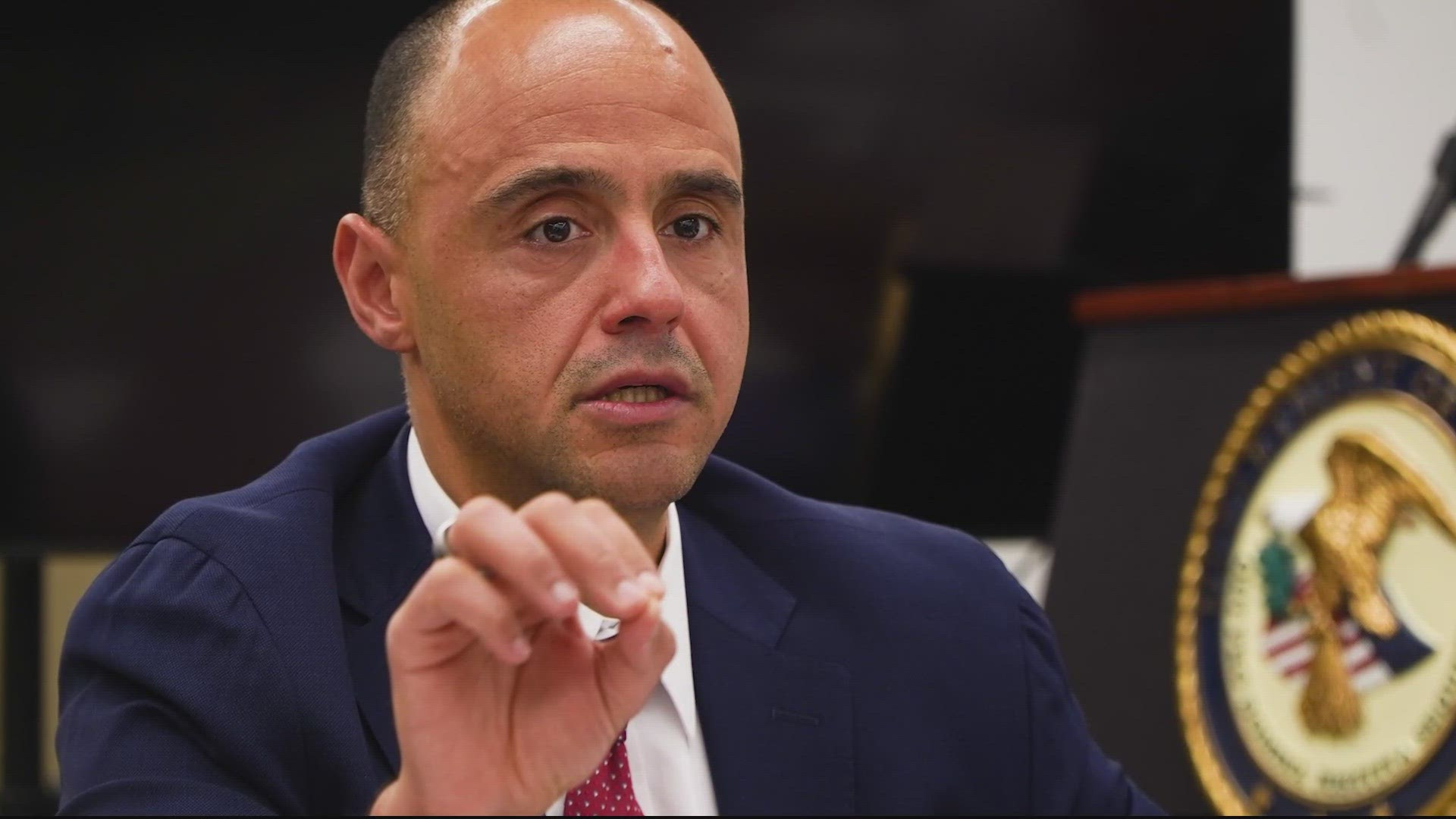US Attorney for the District of Columbia Mathew Graves and his top prosecutors met with DC Councilmembers for two and a half hours, showing images of some of the firearms recently recovered by police in the nation's Capitol.
The photos included a handgun modified with a Tommy gun style drum magazine made famous by mobsters in the 1920s. Graves also showed a video of a trained firearms expert demonstrating how criminals are taking regular handguns and in 30 seconds illegally turning them into machine guns.
D.C. is on pace for a 490% increase in recoveries of those machine gun conversion devices over the last 2 years. Graves pointed to the stunning statistics and images as proof of major gaps in DC’s firearms prosecution laws.
“I’m here today to talk about the system,” said Graves in an interview with WUSA9.
A system that Graves says overwhelmingly releases gun offenders before trial, and more often than not gives them probation if they’re convicted. Only to see the criminals simply return to the street to illegally re-arm themselves again.
Graves says there’s also been a sharp increase in the number of gun convictions his office has had overturned by D.C.’s Court of Appeals.
“That effectively is a message unintentionally being said that firearms possession is not that serious,” Graves said. “And that is the dead wrong message right now.”
Graves laid out how changes passed by the DC Council to its criminal code have made it much harder to search people for guns using consent laws. Obstacles Graves said police in Maryland and Virginia do not face. He said that’s had a direct impact on the number of illegal firearms MPD is taking off the street right now. He said his office supports Councilmember Brooke Pinto’s Secure DC Plan which would strengthen firearms prosecutions in the District.
“What we’ve proposed in the Secure DC Plan will help us,” Pinto said. “Will help us prove carjacking cases, will help us track GPS monitoring, will help us ensure that endangerment with a firearm and shooting into the public will be treated with the severity it deserves.”
Among other changes, Pinto’s plan would force judges to include written opinions when they release gun offenders pre-trial over the objections of prosecutors. And allow police to conduct warrantless searches on someone who is on probation, parole or supervised release for a gun crime; or on supervised release awaiting trial for a violent crime.
That proposal draws comparisons to the days of stop and frisk from civil rights groups.
“It has to be a check and balance,” Councilmember Trayon White told WUSA9. “Historically African Americans have been discriminated against and it has been unfair.”
Councilmember Christina Henderson said that history is always in the back of her mind.
“Not wanting to make the same mistakes of in the 80s and 90’s,” she said. “That being said, I do feel like the US Attorney brought up some pretty solid points.”
Graves did face questions about the risk of targeting communities of color with Pinto’s warrantless search proposal. Graves said he believes his office could work with MPD and DC Council to make sure guardrails are put in place to prevent that from happening.
The U.S. Attorney also talked about the challenges his office faces getting forensics testing back in a timely matter. D.C.’s Department of Forensic Science lost its accreditation in 2021. Since then, the U.S. Attorney’s Office for the District of Columbia has struggled to get evidence, including gun DNA, tested in a timely matter.
In D.C. there’s a 100-day clock that starts ticking at the moment of arrest. If prosecutors don’t get that evidence back in time, the case can get thrown out. Graves said they have been able to figure out a rather expensive stop gap, spending millions to outsource the evidence testing to private labs. But he wants the DC Council to change laws to make it easier for his prosecutors to get extensions while they wait for those results to come back.

